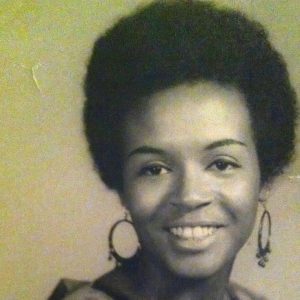Dr. Joyce A. Ladner, activist, sociologist, educator, mentor, and author, worked fervently for equality and justice. Ladner was born Joyce Ann Ladner on October 12, 1943, in Hattiesburg, Mississippi, to Annie Ruth Perryman. Joyce was raised with four brothers and four sisters, one of whom was activist Dorie Ladner, with whom she worked closely during the 1960s Civil Rights Movement in Mississippi.
Ladner was acutely aware of injustice at a young age and after the murder of Emmett Till in 1955 in Money, Mississippi, about 200 miles north, when she was 12. At that point, she vowed to dedicate her life to promoting racial justice. She became involved with the local NAACP youth chapter in Hattiesburg and would later become a pivotal contributor to the Student Non-Violent Coordinating Committee’s (SNCC, pronounced ‘Snick’) efforts to advocate for voting rights, equal education and the end of racialized systems and practices when the group began working in Mississippi in 1962.
Ladner enrolled in Jackson College (now known as Jackson State College) as a first-generation college student in 1960. Jackson State would expel Joyce in 1961 for participating in civil rights demonstrations. She then enrolled in nearby Tougaloo College to continue her education, where she would find mentors such as Medgar Evers, Vernon Dahmer, and Clyde Kennard. She also continued her involvement with SNCC and the NAACP since Tougaloo, as a private institution, was not subject to political pressure from the conservative government of Mississippi. She graduated in 1964 with a degree in sociology.
In 1964, Ladner enrolled in graduate school at Washington University in St. Louis, Missouri, and earned a Ph.D. four years later. In 1971, she published her first book, Tomorrow’s Tomorrow, a groundbreaking study examining girls’ lives living in the Pruitt-Igoe Housing Project in St. Louis. Her volume helped deconstruct societal myths about Black girls. She was one of the first scholars to introduce the idea of intersectionality and to research and write about the interior life of Black women. This helped challenge prevailing theories and myths about racial and gender inferiority.
Ladner’s later research and literary contributions include The Death of White Sociology (1971), The Ties That Bind (2000), and The New Urban Leaders (2001), among others. Joyce Ladner accepted a position on the faculty at Howard University in 1981 and spent most of her career there. From 1994 to 1995, she served as the University’s interim President.
Dr. Ladner retired from Howard in 1997 and later worked for President Bill Clinton. She continues to be active in many organizations, including SNCC’s Legacy Project, The American Sociological Association, and the Washington’s Women Forum and Coalition, as part of her lifelong commitment to social change and social justice.
Do you find this information helpful? A small donation would help us keep this available to all. Forego a bottle of soda and donate its cost to us for the information you just learned, and feel good about helping to make it available to everyone.
BlackPast.org is a 501(c)(3) non-profit and our EIN is 26-1625373. Your donation is fully tax-deductible.
Marlee Bunch, “Joyce Ladner and SNCC.” AAIHS, November 14, 2023. https://www.aaihs.org/joyce-ladner-and-sncc/. “Dorie Ann Ladner and Joyce Ladner Oral History Interview Conducted by Joseph Mosnier in Washington, D.C., 2011 September 20.” The Library of Congress. Accessed May 25, 2024. https://www.loc.gov/item/2015669153/. “Joyce Ladner,” SNCC Digital Gateway, July 15, 2020. https://snccdigital.org/people/joyce-ladner/.

